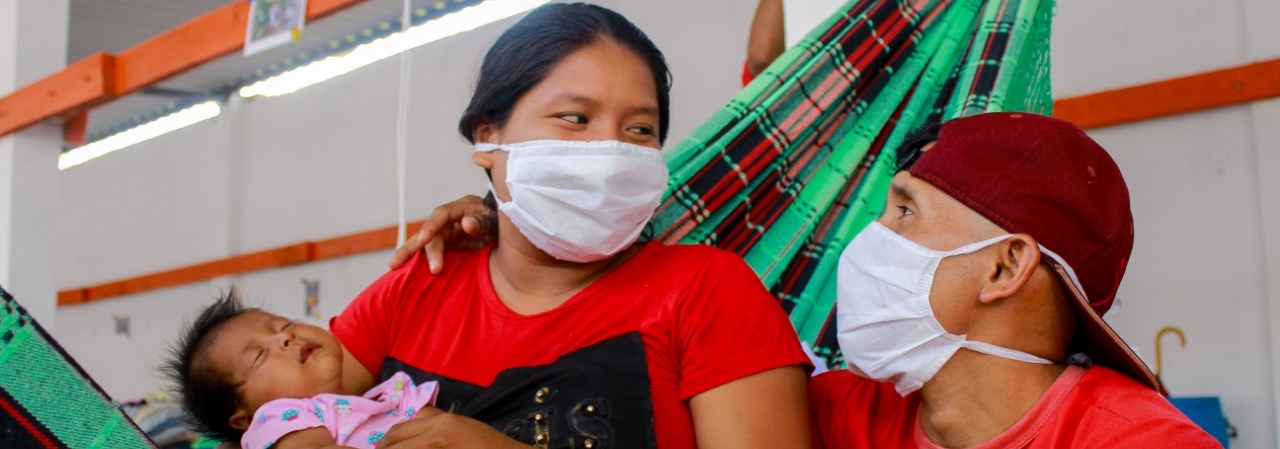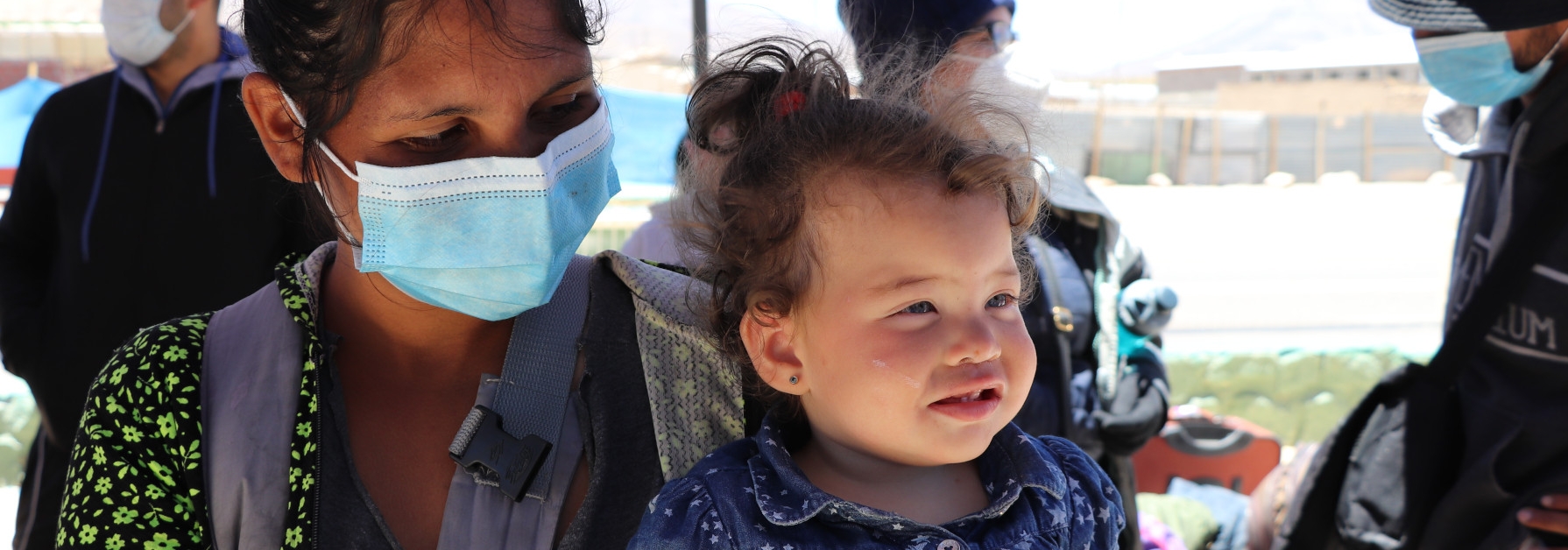IOM Vision
In response to the increasing flows of refugees and migrants from Venezuela in the evolving COVID-19 context, IOM strives to save lives, alleviate suffering and maintain human dignity through supporting safe and dignified migration, access to basic humanitarian needs, protection and durable solutions; as well as complementing and strengthening the national responses and the regional efforts of governments. IOM will sustainably and comprehensively address humanitarian and protection needs in transit and destination countries as well as seek longer-term solutions for all those affected. Through inter-agency analysis and coordination, as well as its presence along the Venezuelan migration routes and long-lasting cooperation with host countries and communities in the region, IOM will ensure it’s response addresses the evolving migration and COVI9-19 pandemic context.
Objective
Saving lives and protecting people on the move
Migrants, refugees, government counterparts, communities, vulnerable groups, such as children, pregnant women, female-single-headed household, older persons, persons with disabilities, indigenous communities, lesbian, gay, bisexual, transgender and intersex (LGBTI) communities.
|
In order to address the basic needs of the beneficiary population, IOM will:
|
|
IOM will provide appropriate, timely and efficient emergency consular services in order to:
|
|
IOM aims to improve access to life-saving primary health care services for refugees and migrants from Venezuela and communities including tuberculosis, COVID-19, HIV/AIDS, non-communicable diseases, mental health and psychosocial support, and sexual and reproductive health through:
|
|
With the aim of promoting, protecting and supporting the well-being of the beneficiary population, IOM will:
|
|
IOM plans to strengthen humanitarian transportation assistance in order to ensure the safe, voluntary and dignified movements of refugees and migrants from Venezuela’ through the following interventions:
|
|
IOM's interventions will prioritise vulnerable groups, such as children, pregnant women, female-single-headed household, older persons, persons with disabilities, indigenous communities, lesbian, gay, bisexual, transgender and intersex (LGBTI) communities who are increasingly vulnerable to human rights and protection risks, including GBV, trafficking in persons and other forms of exploitation, abuse and/or violence. The safety, dignity and well-being of all crisis-affected persons, especially women and girls, and their equitable access to services will be prioritised, integrated and coordinated across all sectors of the response. To that end, IOM will:
|
In order to provide immediate access to safe water and sanitation, and to promote good hygiene practices, IOM will:
|
|
IOM's shelter support will include:
|

Objective
Driving solutions to displacement
Migrants, refugees, indigenous communities, vulnerable individuals, government counterparts, host communities, health professionals, as well as local and national entities.
|
Following its Progressive Resolution of Displacement Situations Framework, IOM will promote the socio-economic integration of refugees and migrants from Venezuela, ensuring equal and tailored labour opportunities for men, women and youth. IOM will equally support access to various levels and types of education, ranging from children, with particular attention to girls, to professional/vocational education for youth and adults. IOM plans to carry out the following activities:
|
|
In order to strengthen health systems in receiving countries, health professionals, as well as local and national entities, will benefit from capacity-building activities, including improved capacity to respond to the needs of vulnerable migrants, refugees and communities, including for COVID-19 prevention, treatment and referrals. IOM plans to:
|
|
IOM aims to address the socio-economic impacts of the COVID-19 crisis through:
|
Objective
Strengthen preparedness and reduce disaster risk
|
Migrants, refugees, vulnerable individuals, government counterparts and communities. |
|
MHPSS support will be offered in the form of:
|
|
IOM aims to promote improved hygiene practices and sanitation through the provision of activities, supplies and infrastructure, including through:
|
Objective
Contribute to an evidence-based and efficient crisis response system
Government counterparts and partners.
With the aim of contributing to the availability of reliable, timely and accurate data, IOM will:
|
Argentina, Aruba, Bolivia (Plurinational State of), Brazil, Chile, Colombia, Costa Rica, Curaçao, Dominican Republic, Ecuador, Guyana, Mexico, Panama, Paraguay, Peru, Trinidad and Tobago, Uruguay
The map used here is for illustration purposes only. Names and boundaries do not imply official endorsement or acceptance by IOM.
Figures are as of 31 December 2023. For more details of IOM's operational capacity in country, please see the IOM Capacity section.










